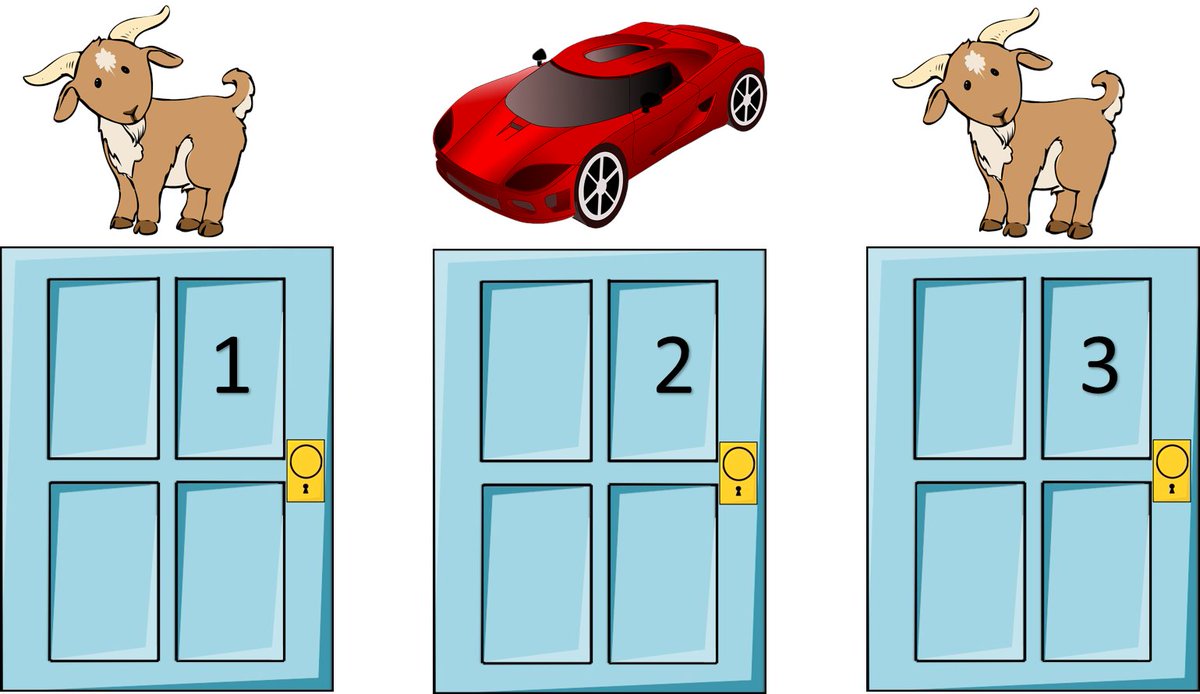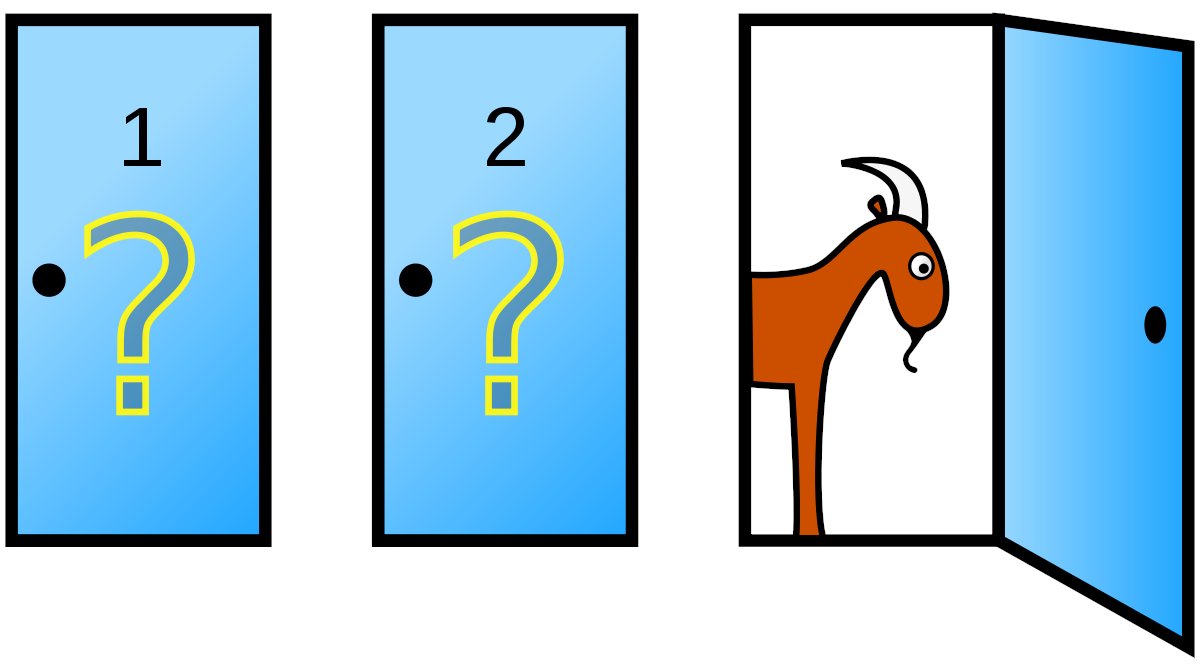Have you heard of the "probability paradox" known as The Monty Hall Problem?
In my opinion, it's BARELY about probability and is DEFINITELY not a paradox! It's OVER-HYPED by folks that get a buzz out of "tricky" math puzzles!
I'm going to explain it to you WITHOUT ANY MATH.
In my opinion, it's BARELY about probability and is DEFINITELY not a paradox! It's OVER-HYPED by folks that get a buzz out of "tricky" math puzzles!
I'm going to explain it to you WITHOUT ANY MATH.

FIRED UP? LETS. DO. THIS! First, let's talk about what the Monty Hall Problem even is...
You're on Mr. Monty Hall's game show. There are 3 doors. One of them has a car behind it. The other two have goats. You pick an unopened door. At the end of the show, you get to keep whatever is behind your door.
The host opens one of the two remaining doors revealing a goat. He asks if you want to switch your door choice to the other unopened door. The question is whether you should switch your doors? What do you think?
Some folks are going to tell you there's a 1/3 chance of winning the car if you don't switch but are a 2/3 chance if you do. Therefore, you should switch. Forget about those folks! That's not what we're talking about here.
Let me explain. There are two scenarios. If you picked the unopened door with the car behind it, Monty is free to pick from any of the two remaining doors which each have a goat behind them. Therefore, his door choice means nothing.
If you picked a door with a goat behind it, he only has ONE door choice which is the one with the other goat. If he picks the door with the car, he'll REVEAL THE CAR! He doesn't want to do that! In this scenario, Monty's door choice is influenced by his KNOWLEDGE of the car.
To sum up. There's one scenario where Monty's choice means nothing. There's another scenario where dude is basically telling you EXACTLY where the car is. You just have to pick the opposite of what he picked. In this scenario, basing your choice on his GUARANTEES you the car.
If we had a friend who sometimes picks his lottery numbers randomly and sometimes knows the winning numbers in advance, it doesn't matter what probability he has of knowing the winning numbers, it will ALWAYS be better for us to let him pick the numbers rather guessing ourselves.
In the worst case scenario, his choice is no less random than your choice. In the best case scenario, you are guaranteeing yourself a win.
This is why I say the Monty Hall Problem has barely anything to do with the probability. It's just saying it's better to base your choices on someone that sometimes has some knowledge of a situation vs relying on yourself who has zero knowledge. Where is the paradox in that?
Thanks for coming to my TED TALK.

 Read on Twitter
Read on Twitter



